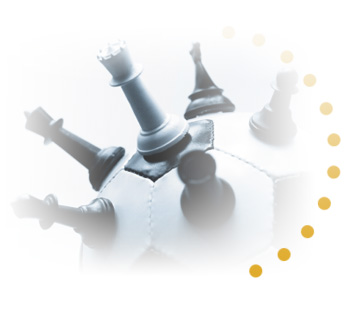Discovery Driven Development - 3D Coaching™
In recent times executive coaching has clearly been in vogue. Executive coaching often involves a relatively basic assessment and six to twelve months of biweekly meetings. Typically, common tools like the DISC or MBTI are used for assessment and, while they can be very valuable diagnostics, they do not provide the breadth, depth and texture needed to really drive the level of insights needed for deep personal change.
In the HRA Discovery Driven Development (3D) coaching process, assessment is a major component and catalyst for change in and of itself (through measurement-driven change). Our 3D coaching process can best be characterized by the criteria and components listed below. For consultation or more information please feel free to phone 847.266.1100 or use the form at the bottom of this page..
- Up-Front In-Depth Assessment. A substantial amount of effort in our 3D coaching process is devoted toward a sophisticated, upfront assessment and discovery. It is our belief that the assessment rather than being just a relatively brief, preliminary and minor component of the executive coaching (which it often is), in many ways should be a more integral and rigorous core component to serve as a key driver of change in itself. The assessment process we use is very rigorous and yields a highly in-depth report.
Our executive assessment findings often include a clear and detailed specification of issues like: overused strengths, gaps, unintended consequences of certain behaviors, mental models and other drivers of counter-productive behaviors. We find that once an executive comes to terms with these types of issues, to a large extent they will have the road-map and change catalyst they need to maintain a high level of awareness and intentionality for change. As such, we shift a considerable degree of our executive coaching efforts to participant Self Discovery, assuming that executives do not generally need a high degree of "hand-holding" to execute once they set their objectives (although we are extremely supportive in any way we can be).
- Self-Discovery. Our executive coaches view one of their primary roles as: 1) systematically gathering and interpreting the assessment data; and 2) working closely with executives to facilitate their self-discovery. This assures that executives are directly engaged, take a key role in interpreting, owning and integrating the findings and assume full responsibility for action and follow-up.
- Increase of Coaching Efficiency. Once the participant and their manager have the assessment results, the requirement for more frequent executive coaching meetings is significantly reduced. While the typical executive coaching model requires something along the lines of bi-monthly meetings for six months, we often recommend less meetings and more of a graduated schedule where time in between executive coaching meetings increases over time. The specific details of this schedule are tailored to the needs of the organization and the client.
- Decreasingly graduated Schedule of 3D Coaching Sessions. Following the up-front, in-depth assessment we conduct meetings with the participant and their boss. In this regard, we are very deliberate about shifting more of the ownership for ongoing development to both the boss and the participant. Coaching sessions include: a) progress checks; b) further clarification of some of the key nuances of the in-depth findings, c) discussion of what is working and what is not; and d) different strategies and tactics for changing mental models and behaviors. A typical schedule would involve approximately three meetings approximately three weeks apart (processing stage), two meetings six weeks apart (stabilization stage) and one meeting 12 weeks later (fine-tuning stage). Using this approach we increase the sense of urgency, reduce time the executive spends in coaching meetings, decrease costs and, as stated above, devote more time to the critical aspect of self-discovery and in-depth understanding.
|

